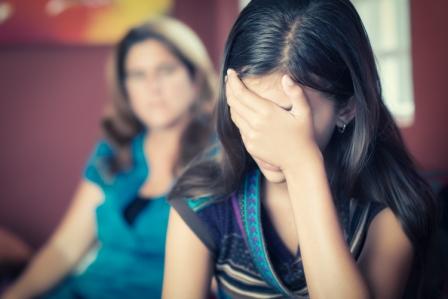Symptoms of depression and suicidal ideation (SI) among adolescents with psychiatric conditions and substance use disorders (SUDs) may be affected by parental monitoring and family functioning, according to results of a 2-group randomized, parallel trial, published in the Journal of Affective Disorders.
Researchers from Brown University recruited adolescents (N=111) enrolled in the community-based Intensive Outpatient Home-based Program for co-occurring disorders who endorsed using substances in the previous 3 months. Participants were randomized to receive integrated cognitive-behavioral therapy (I-CBT) or standard care. Families were assessed for functioning, parents for their parental processes, and adolescents for depressive symptoms and SI at baseline, 3, 6, and 12 months.
Adolescents were aged mean 15.73±1.19 years, 57.66% were boys, 71.62% identified as heterosexual, 72.90% were White, and 44.44% lived in households with <$26,000 annual income. At baseline, the Children’s Depressive Inventory (CDI)-2 was mean 16.66±10.10 and the SI Questionnaire (SIQ) was 17.01±19.07.
Most common psychiatric diagnoses were oppositional defiant disorder (63.96%), major depressive disorder (57.66%), conduct disorder (55.86%), attention deficit/hyperactivity disorder (54.05%), generalized anxiety disorder (33.33%), social anxiety disorder (19.82%), and posttraumatic stress disorder (19.82%).
The adolescents most frequently reported marijuana abuse (83.78%), marijuana dependence (60.36%), and alcohol abuse (32.43%).
In a mixed-effects regression model, depressive symptoms associated with baseline CDI-2 score (b, 0.61; 95% CI, 0.53-0.69; P <.001), time (b, -1.98; 95% CI, -2.50 to -1.47; P <.001), and parental monitoring over time (b, -0.41; 95% CI, -0.76 to -0.06; P <.05). SI associated with baseline SIQ (b, 0.57; 95% CI, 0.50-0.63; P <.001), time (b, -2.33; 95% CI, -3.27 to -1.38; P <.001), and parental monitoring over time (b, -0.79; 95% CI, -1.43 to -0.15; P <.05).
Adolescents who had more parental monitoring had greater improvement of depressive symptoms and SI over time. No treatment effects of usual care or I-CBT were observed.
This study may have been limited by including only adolescents with SUDs, it remains unclear whether increased parental monitoring would have an effect among a population of depressed adolescents who were not using substances.
These data indicated parental and family characteristics may be important factors for improving symptoms of depression and SI among adolescents who have SUD.
Reference
MacPherson HA, Wolff J, Nestor B, et al. Parental monitoring predicts depressive symptom and suicidal ideation outcomes in adolescents being treated for co-occurring substance use and psychiatric disorders. J Affect Disord. 2021;284:190-198. doi:10.1016/j.jad.2021.02.021

